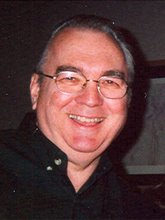We went to see the new movie, Atlas Shrugged, Friday evening at Chicago’s AMC theater at River North. It was a fascinating evening. This was the opening weekend of a very limited release.
The venue was very impressive. The theater itself had seating for 950 according to the placard on the wall. It was comfortably full; I’d say at least 700. The most interesting thing about the crowd was that it was at least 80% 30s-and-under; mostly couples and groups of couples. We actually felt like the “oldies” in the group!
The attendees had obviously read the book. There was lively discussion about its contents, about the movies adaptation of its story line and the general philosophy/approach of Rand overall. I would say that if this is the so-called “tea-party-crowd,” then the Tea Party is in pretty good shape.
The movie itself was a bit of a disappointment for me. The acting was ok, I didn’t get the “made for TV” feeling mentioned in some of the critical pans (remember the critics have to be “politically correct” in assessing this most unpolitically correct movie). The not-big-name-actors made it rather refreshing, as the “no-namers” held their own.
My less than satisfying feeling came mainly from the fact that it turns out this is a “Part 1” of what seems to be a planned 3-part effort. You don’t get very far into the book with this part and “who is John Galt” is never answered--the movie ends with the igniting of “Wyatt’s Torch” (a point of info for those who’ve ready the book). If the other two parts get made, this will be resolved but with low budget movies that have taken decades to get this far, that is not a sure thing. I’d have like to have had more resolution of the overall story of the book.
It is a movie well worth seeing. And a book well worth reading. I read the book in the ‘60s and had actually forgotten about it until hearing about the movie. I’m pleasantly surprised it is still being read—and from our observation of the crowd, studied and appreciated.
Which brings me to a point that needs to be made: In our current cultural clamor to reconstruct a society which once again will celebrate individual achievement and enlightened self-interest, we need to be informed about those to whom we give our ear.
Ayn Rand was the “mother” of the Objectivist movement. She (as well as this movement) was outspokenly atheistic and demonstratively anti-religion. Although she/they saw “religion” mainly in terms of Catholicism, she/they rejected out of hand the idea of faith and revelation as the basis for any epistemology (i.e, view of knowledge), code of ethics/values or view of reality. This needs to be understood clearly by those believers who seem to be enamored by her work. Her basic philosophy is anti-god-in-any-and-all-forms.
The Objectivist school bases its understanding of social and societal construct solely on human virtues, reason and intellect, while denouncing as impossibly irrelevant any idea of faith or God. To them the idea of “pride as a virtue” is paramount; the idea it may be a “sin” is scandalous.
For Rand and her followers, both then and now, the watchwords are not faith, God, service; but rather: reason, nature, happiness, man. The absolute, which must guide everything, is the principle of reason; every other idea must meet this test. It is in this approach--in this fundamental rejection of faith--that their philosophy lies. For them, faith is simply “belief in the absence of evidence.”
And it is the propagation of this philosophy that lies at the heart of this novel. When Rand first discussed the publishing of her work with Random House, she reports that she told them, “This work is an extreme, uncompromising defense of capitalism and free enterprise and presents a new philosophy…a new morality….A direct affront to Judeo-Christian values.”
Thus the book works from a premise of abandonment of God, the belief that we have a right to exist for ourselves, opposition to the concept of “sinful” man, the pursuit of happiness as a worthy and ultimate goal coupled with the need for a lack of compassion, charity and humility.
So, my friends, in your search for those to help buttress your economic/political/social model or an idealized Americana, be aware that the Rand model will broach no allowance for a deity, divine revelation or a sinful/in need of redemption man, nor the idea of self-sacrifice as a virtue. No. This is a totally sufficient man, with no need of a belief in an unknown and unknowable “other” and no goal beyond a worthy pride.
It is their view that because this world is of vital importance, the definitive motive of man's action should be the pursuit of happiness. Because the individual, not a supernatural power, is the creator of wealth, a person should have the right to private property, the right to keep and use or trade his own product. And because man is basically good, they insist, there is no need to leash him; there is nothing to fear in setting free a rational animal.
Thus is the ideal of the author of Atlas Shrugged. It is an ideal doomed to fail. See Romans 1:19-25.
